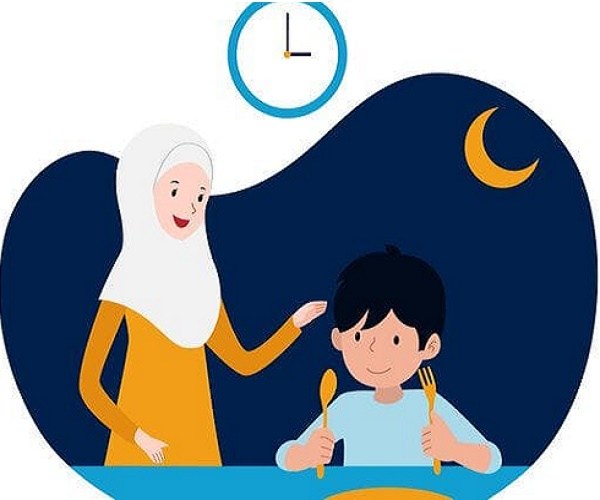The last time the month of Ramzan came in summer, I was a child. I had always associated Sehri — the pre-dawn meal during fasting in the month of Ramzan — with summer vacations, which it made it more exciting for me. Maybe it was because of all the midnight feasts I had read about in Enid Blyton books, but Sehri, in my mind, had become something fun, elusive and almost magical.
As children, sleep was the last thing on our minds. My brother and I would often make pacts between us to stay awake until it was Sehri, so that we wouldn’t miss out on this magical midnight feast. It was only as an adult that I realised that Sehri was actual hard work — waking up before anyone else, making rotis, heating food, making tea — when all I wanted to do was sleep.
Sehri is a bit like having lunch in the middle of the night. It was, after all, the same kind of food — rice, gravy, with a side dish of shami kabab, kofta or fried chicken. After I got married, my sister-in-law and I would prepare food together for the family before Sehri. We would chat companionably and I missed those moments when she got married and moved away.
As a child, Iftar — the evening meal to break the Ramzan fast — was never as much fun as Sehri. But it was something to look forward to, especially when I had been fasting. Not much has changed in the Iftar menu since childhood. We still have dates, fruit, ganji — a tasty rice based porridge with bits of mince or shredded chicken — and of course, something fried.
It’s almost unthinkable for most households not to have fried foods like bhajji, bonda, samosa or pakora during Iftar. The crunchier, the better. And this definitely involves deep frying. It’s a misconception that people lose weight during Ramzan, it’s actually the opposite. Imagine eating fried food every day with a probable chance of being disowned if you even suggest eating healthy!
Sehri a meal for sustenance, so one doesn’t have to worry about whether things are crunchy or not.
But what do you do when two members of your family are diagnosed with heart problems? The onus of making sure my husband and mother-in-law eat healthy was on me and it has not been easy, especially during Ramzan. After all, what could I possibly do to replace the tasty fried foods that are a must on the Iftar table?
Being the most responsible person in the family is a huge headache, especially when I would rather not be. I often feel like I’m a strict teacher and the two of them are errant children. Also, the idea that I might be the most responsible person in the house is frankly terrifying (and also hilarious for my mother, who knows how absent-minded I am).
I invested in an air fryer with much optimism, expecting it to change my life. But to my disappointment, my pakoras — one of the first things I attempted to make in it — came out undercooked and soggy. I tried many things, including fiddling with the temperature, but there were no crispy and crunchy pakoras to be had.
I found out later that the name ‘air fryer’ itself is misleading, because it doesn’t actually fry anything. It works by circulating hot air around the food in a convection current. A small chamber also meant that I could not make large batches. After being hungry and thirsty all day, no one wants their snacks to be rationed. Even then, the air fryer has not been relegated to the corner of shame where most appliances bought with hope go to languish. I have been using it regularly throughout the year to grill chicken and fish. Despite the complaints (that it doesn’t taste the same), the family has gotten used to it.
And yet, Sehri is still easier than Iftar because there’s no silent pleading with the air fryer to co-operate at least this time as the sleepy family gathers around to eat. It’s a meal for sustenance, so one doesn’t have to worry about whether things are crunchy or not. My children wake up a little reluctantly, but are quite gung ho when it’s time to sit down and eat. The younger one has his eyes on the clock to see how much time we have left to finish eating (there’s a specific time before which we should finish eating and drinking water).
Once Sehri is done, we all go back to sleep after reading the morning Fajr namaz. I could never fall asleep as a child because of having eaten at an odd hour. Now, perhaps because of the chemicals the brain secretes when you eat at odd hours, I have some interesting and almost psychedelic dreams.
Sehri and Iftar are like two sides of the same coin — one is humble and the other is more lavish. Both, however, bring us the realisation of how thankful we must be for the food we eat and the water that we drink. #KhabarLive







